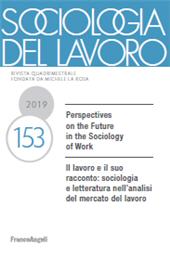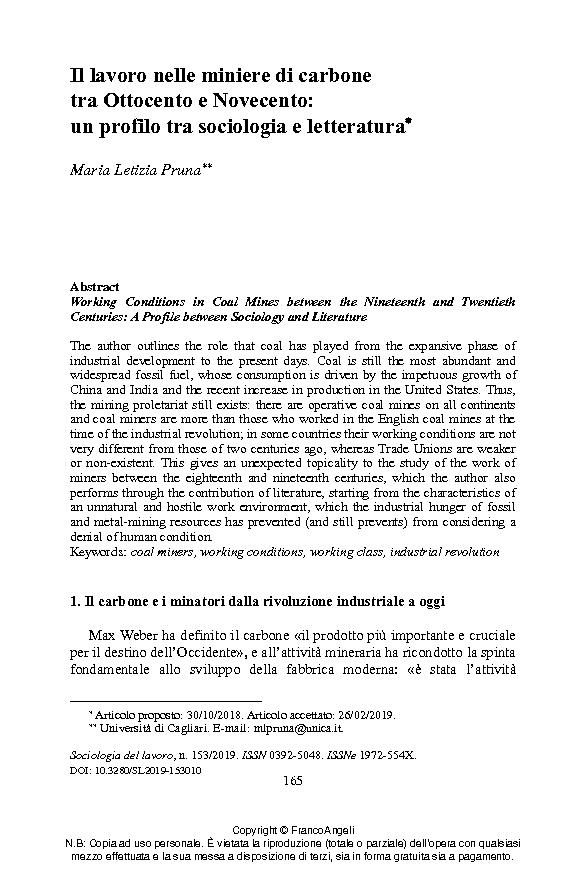Il lavoro nelle miniere di carbone tra Ottocento e Novecento : un profilo tra sociologia e letteratura
165-181 p.
L'autrice traccia a grandi linee il ruolo che il carbone e i minatori hanno svolto nella lunga fase espansiva dello sviluppo industriale, a partire dall'Inghilterra del XVIII secolo e nel resto dell'Europa. Viene evidenziato che il carbone è tuttora il combustibile fossile più abbondante e più diffuso, il cui consumo è trainato dalla crescita impetuosa di Cina e India, e dal recente rilancio della produzione negli Stati Uniti. Dunque, il proletariato minerario esiste ancora: ci sono miniere di carbone attive in tutti i continenti e i minatori di carbone sono più numerosi di quanti fossero nelle miniere inglesi all'epoca della rivoluzione industriale e nei decenni successivi. In alcuni paesi le loro condizioni di lavoro non sono molto diverse da quelle di due secoli fa, mentre le organizzazioni sindacali sono spesso più deboli o inesistenti.
Ciò conferisce un'attualità inattesa allo studio delle condizioni di lavoro dei minatori tra il XVIII e il XIX secolo attraverso il contributo della letteratura di questo periodo storico. [Testo dell'editore].
The author outlines the role that coal has played from the expansive phase of industrial development to the present days. Coal is still the most abundant and widespread fossil fuel, whose consumption is driven by the impetuous growth of China and India and the recent increase in production in the United States. Thus, the mining proletariat still exists: there are operative coal mines on all continents and coal miners are more than those who worked in the English coal mines at the time of the industrial revolution; in some countries their working conditions are not very different from those of two centuries ago, whereas Trade Unions are weaker or non-existent.
This gives an unexpected topicality to the study of the work of miners between the eighteenth and nineteenth centuries, which the author also performs through the contribution of literature, starting from the characteristics of an unnatural and hostile work environment, which the industrial hunger of fossil and metal-mining resources has prevented (and still prevents) from considering a denial of human condition. [Publisher's text].
Is part of
Sociologia del lavoro : 153, 1, 2019-
Articles from the same issue (available individually)
-
Information
ISSN: 1972-554X
DISCIPLINES
KEYWORDS
- Lavoro, classe operaia, rivoluzione industriale, miniere di carbone
- Coal miners, working conditions, working class, industrial revolution



